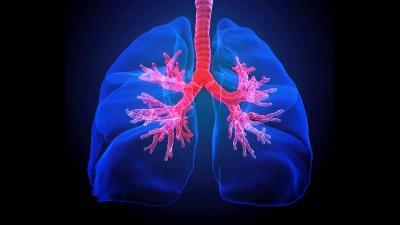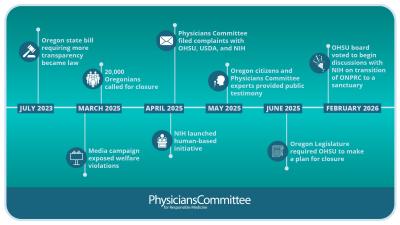The Physicians Committee Recommends the NIH Fund Human-Based Research Infrastructure

Physicians Committee experts submitted a public comment to the NIH recommending measures to ensure effective implementation of the agency’s exciting new initiative to expand innovative, human-based science and reduce animal use in research.
The groundbreaking initiative prioritizing the development and use of human-based research was quickly followed by a new policy to no longer solicit animal-only research. The Physicians Committee has been busy engaging with the NIH to continue building on these landmark achievements that will improve the effectiveness of medical research and save human and animal lives.
In September, an NIH advisory group called the Council of Councils met to discuss activities of the Division of Program Coordination, Planning, and Strategic Initiatives (DPCPSI). DPCPSI oversees a variety of agency-wide efforts, such as the National Primate Research Centers, the NIH-Wide Strategic Plan, and the Complement-ARIE program, which promotes the development and use of nonanimal methods. In a public comment for this meeting, the Physicians Committee made three recommendations:
- Introduce new funding opportunities and innovative mechanisms to support the development and use of human-based, nonanimal methods;
- Ensure human-based research is prioritized in the next NIH-Wide Strategic Plan; and
- End support for egregious and unproductive primate research.
As a part of its initiative to prioritize human-based research, the NIH committed to expanding funding, training, and infrastructure for nonanimal methods. A key component of this effort will be grants that support infrastructure projects to scale up human-based research and modernize facilities, including animal research facilities like those at the primate research centers. These and other efforts related to the new initiative should be detailed in the next NIH-wide Strategic Plan—a key coordinating document that is mandated by Congress to be developed every six years to provide direction to advance medical research.
Finally, to fully prioritize human-based research and reduce animal use, the NIH will need to immediately begin phasing out ongoing animal research, including projects using monkeys where nonanimal approaches can provide more clinically-relevant insights. Beyond recommending funding for animal-free research infrastructure, the Physicians Committee urged the NIH to end support for egregious and unproductive experiments using monkeys in areas such as nutrition, reproductive health, and substance use, and instead expand support for human-based research.
The Physicians Committee is committed to ensuring an effective transition away from outdated and unnecessary animal experiments.







